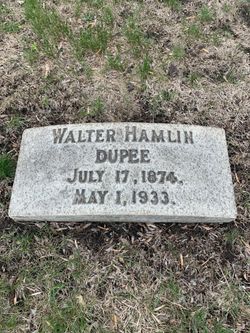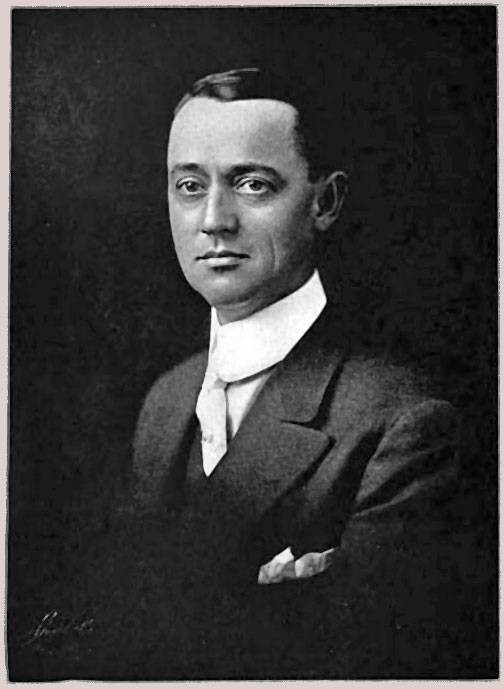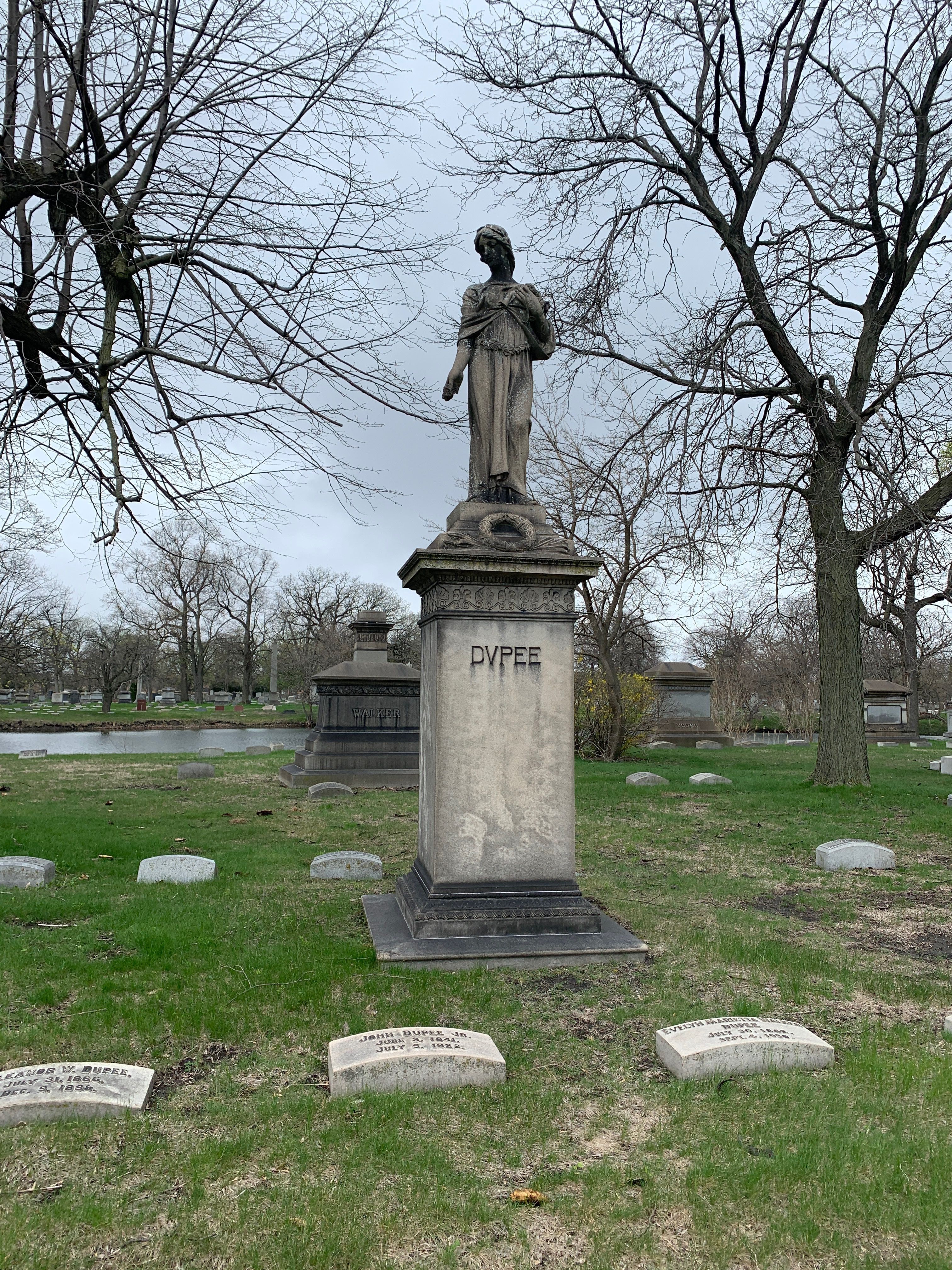Mr. Dupee received his early education in the University School of Chicago, and later was a student at Harvard School of the same city, but left when he was about sixteen years of age and began his career as a clerk in the office of Schwartz-Dupee & Company, an old-established stock and grain brokerage firm of Chicago, of which his father was one of the founders. In this capacity he learned the rudiments of the business and was promoted, as time went on, to more responsible positions, until he finally acquired an interest in the firm.
In 1897, after serving about seven years in the brokerage business, Mr. Dupee left Chicago and went West in search of investments. He finally went to Lower California, in the Republic of Mexico, and there purchased about seventy-five thousand acres of land for investment purposes. For some time he was engaged in the raising of horses and cattle on these lands, but ultimately sold his stock and also much of the land, although he still owns a large part of the original purchase.
Mr. Dupee continued his interest in financial affairs in Chicago, and in 1905 became a partner of Charles G. Gates, son of the late John W. Gates, the noted financier, in the firm of C. G. Gates & Company. This company, which had brokerage offices all over the United States and in various foreign countries, was the largest institution of the kind in the world. Mr. Dupee was one of the active factors in the management of the Chicago headquarters of the firm for three years, but upon the dissolution of the company in 1907 retired from active business, and since that time has confined his operations to investment enterprises, consisting chiefly of stocks and bonds.
In 1908 Mr. Dupee, to whom Southern California had made a strong appeal during previous visits to that section, transferred his home to the beautiful Island of Coronado, adjacent to San Diego, California, and has kept his residence there since.
A born lover of horses, Mr. Dupee learned to ride in his youth, and while at school took up the sport of Polo. He played for several years in and around Chicago, and since locating in California has become known as one of the crack players of the United States, having figured in numerous important matches. He became a member of the Coronado Beach Country Club and also of the Coronado Beach Polo Club shortly after his arrival there, and is credited with having done a great deal towards creating enthusiasm for the game on the Pacific Coast. He played in several matches in 1908, and the following season was one of the organizers of the crack Coronado Country Club four.
This team was made up of Mr. Dupee, Lord Innes-Ker and Lord Tweedmouth of England, and Major Colin G. Ross, former commander of the Canadian Northwest Mounted Police, all known as hard-riding, expert players. They met the best teams of the Southern California League during that season, and gave their competitors a hard run for the championship.
The next season (1910) Mr. Dupee's team was changed somewhat, consisting of himself, Major Ross, Harry Scott and Cheevar Cowdin. This four made one of the best records in the history of Polo in Southern California, but their play was exceeded by the team of which Mr. Dupee was Captain in the season of 1911. With him in the latter season were Lords Tweedmouth and Herbert and Lucian Gower, brilliant players, and while there were various changes in the make-up of the team during the season, Mr. Dupee played in practically every game. On January 18, 1911, at Pasadena, California, Mr. Dupee's team, of which he was Captain, defeated the Pasadena Polo Club four by a score of 16 ¼ goals to 8 ¾, after giving the Pasadena players a handicap of eight goals. This was the first game played on the Pacific Coast under the American rules.
This victory placed Mr. Dupee's team in the finals for the championship, and in the deciding game of the season, played on January 21, 1911, between the Coronado four and the Santa Barbara team, the former won the honor. In this contest Mr. Dupee played an exceptionally brilliant game, and was one of the chief factors in the victory of his team, which carried off the silver cups awarded as trophies.
On March 4 of the same year Mr. Dupee and Major Ross, as members of a picked team, called the "Blues," defeated another picked team, the "Whites," in a historic battle at Coronado Beach. The play was characterized by the fastest polo work ever seen on the green at Coronado, and the victors, who carried away the championship of Coronado, were awarded four silver cups, donated by Mr. John Dupee, father of Walter Dupee.
At the close of the Southern California season in 1911 Mr. Dupee, who is an ardent enthusiast at all times, loaned several of his Polo ponies to his friends of the East to be used in the International match between the American and English teams, which was won by the former.
Mr. Dupee plays the game of Polo simply for the love of the sport, and is the owner of one of the finest stables of thoroughbred ponies in the United States. These number forty-five, and several of them are among the crack ponies of the game, celebrated for their intelligence, speed and staying powers. He maintains these ponies for the use of himself and his friends and has never been known to traffic in them.
Mr. Dupee is not interested in politics or public affairs and devotes his time exclusively to his private interests. He travels in Europe and the United States to a considerable extent, but spends the greater part of his time in Southern California, where he is popular in social and club circles.
Aside from his memberships in the Coronado Beach Country Club and the Coronado Beach Polo Club, he belongs to the Pasadena Polo Club, the Chicago Club, Chicago Athletic Club and the Chicago Yacht Club, the three latter, Chicago's most noted clubs.
[Source: Press Reference Library, Western Edition Notables of the West, Vol. I, Page 569, International News Service, New York, Chicago, San Francisco, Los Angeles, Boston, Atlanta. 1913.]
He married third, Helene M. Kavanaugh Hand Whitehead 4 AUG 1932 Missoula, MT
Mr. Dupee received his early education in the University School of Chicago, and later was a student at Harvard School of the same city, but left when he was about sixteen years of age and began his career as a clerk in the office of Schwartz-Dupee & Company, an old-established stock and grain brokerage firm of Chicago, of which his father was one of the founders. In this capacity he learned the rudiments of the business and was promoted, as time went on, to more responsible positions, until he finally acquired an interest in the firm.
In 1897, after serving about seven years in the brokerage business, Mr. Dupee left Chicago and went West in search of investments. He finally went to Lower California, in the Republic of Mexico, and there purchased about seventy-five thousand acres of land for investment purposes. For some time he was engaged in the raising of horses and cattle on these lands, but ultimately sold his stock and also much of the land, although he still owns a large part of the original purchase.
Mr. Dupee continued his interest in financial affairs in Chicago, and in 1905 became a partner of Charles G. Gates, son of the late John W. Gates, the noted financier, in the firm of C. G. Gates & Company. This company, which had brokerage offices all over the United States and in various foreign countries, was the largest institution of the kind in the world. Mr. Dupee was one of the active factors in the management of the Chicago headquarters of the firm for three years, but upon the dissolution of the company in 1907 retired from active business, and since that time has confined his operations to investment enterprises, consisting chiefly of stocks and bonds.
In 1908 Mr. Dupee, to whom Southern California had made a strong appeal during previous visits to that section, transferred his home to the beautiful Island of Coronado, adjacent to San Diego, California, and has kept his residence there since.
A born lover of horses, Mr. Dupee learned to ride in his youth, and while at school took up the sport of Polo. He played for several years in and around Chicago, and since locating in California has become known as one of the crack players of the United States, having figured in numerous important matches. He became a member of the Coronado Beach Country Club and also of the Coronado Beach Polo Club shortly after his arrival there, and is credited with having done a great deal towards creating enthusiasm for the game on the Pacific Coast. He played in several matches in 1908, and the following season was one of the organizers of the crack Coronado Country Club four.
This team was made up of Mr. Dupee, Lord Innes-Ker and Lord Tweedmouth of England, and Major Colin G. Ross, former commander of the Canadian Northwest Mounted Police, all known as hard-riding, expert players. They met the best teams of the Southern California League during that season, and gave their competitors a hard run for the championship.
The next season (1910) Mr. Dupee's team was changed somewhat, consisting of himself, Major Ross, Harry Scott and Cheevar Cowdin. This four made one of the best records in the history of Polo in Southern California, but their play was exceeded by the team of which Mr. Dupee was Captain in the season of 1911. With him in the latter season were Lords Tweedmouth and Herbert and Lucian Gower, brilliant players, and while there were various changes in the make-up of the team during the season, Mr. Dupee played in practically every game. On January 18, 1911, at Pasadena, California, Mr. Dupee's team, of which he was Captain, defeated the Pasadena Polo Club four by a score of 16 ¼ goals to 8 ¾, after giving the Pasadena players a handicap of eight goals. This was the first game played on the Pacific Coast under the American rules.
This victory placed Mr. Dupee's team in the finals for the championship, and in the deciding game of the season, played on January 21, 1911, between the Coronado four and the Santa Barbara team, the former won the honor. In this contest Mr. Dupee played an exceptionally brilliant game, and was one of the chief factors in the victory of his team, which carried off the silver cups awarded as trophies.
On March 4 of the same year Mr. Dupee and Major Ross, as members of a picked team, called the "Blues," defeated another picked team, the "Whites," in a historic battle at Coronado Beach. The play was characterized by the fastest polo work ever seen on the green at Coronado, and the victors, who carried away the championship of Coronado, were awarded four silver cups, donated by Mr. John Dupee, father of Walter Dupee.
At the close of the Southern California season in 1911 Mr. Dupee, who is an ardent enthusiast at all times, loaned several of his Polo ponies to his friends of the East to be used in the International match between the American and English teams, which was won by the former.
Mr. Dupee plays the game of Polo simply for the love of the sport, and is the owner of one of the finest stables of thoroughbred ponies in the United States. These number forty-five, and several of them are among the crack ponies of the game, celebrated for their intelligence, speed and staying powers. He maintains these ponies for the use of himself and his friends and has never been known to traffic in them.
Mr. Dupee is not interested in politics or public affairs and devotes his time exclusively to his private interests. He travels in Europe and the United States to a considerable extent, but spends the greater part of his time in Southern California, where he is popular in social and club circles.
Aside from his memberships in the Coronado Beach Country Club and the Coronado Beach Polo Club, he belongs to the Pasadena Polo Club, the Chicago Club, Chicago Athletic Club and the Chicago Yacht Club, the three latter, Chicago's most noted clubs.
[Source: Press Reference Library, Western Edition Notables of the West, Vol. I, Page 569, International News Service, New York, Chicago, San Francisco, Los Angeles, Boston, Atlanta. 1913.]
He married third, Helene M. Kavanaugh Hand Whitehead 4 AUG 1932 Missoula, MT
Family Members
Sponsored by Ancestry
Advertisement
Explore more
Sponsored by Ancestry
Advertisement











